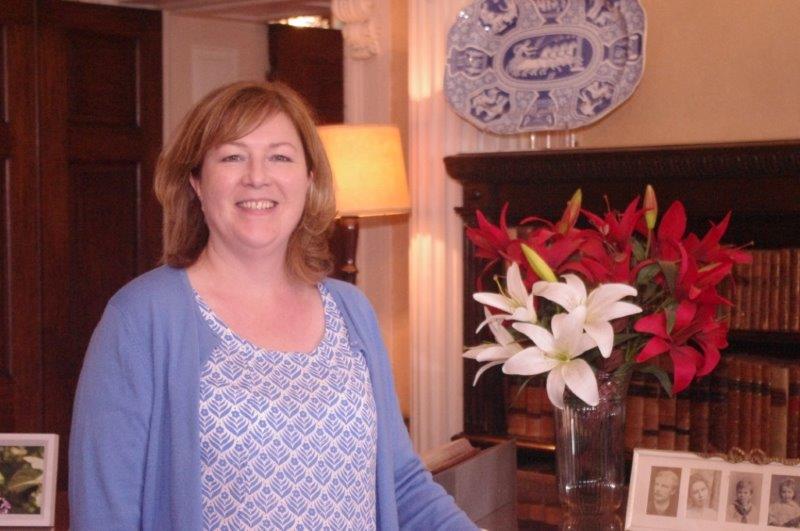War memorials all over the country display sorrowful lists of men killed in the Great War.
But what of the families they left behind? What of wives and mothers left grieving and often with children to raise?
A cache of letters discovered at Ormsby Hall, near Middlesbrough, gives a rare insight into the hearts of these women.
They’re historical treasure, as such records are rare. The letters were written by wives and mothers of soldiers. Such women, says historian Roisin Higgins, “Leave a very light historical trace.”
Roisin, of Teesside University, leads the ‘Dear Mrs Pennyman’ project, to study the letters and learn more of the women who wrote them.
The letters, says Roisin, “Are absolutely heart-breaking. But we went on to discover life-affirming stories. Women who lived on, perhaps with five or six children. We see the pressure they had to keep going, to not collapse, and to honour the sacrifice of their husbands.”
The loss of a husband caused not only grief, but also the loss of his income. The letters show, says Roisin, “The poverty, the hardship, the illness.”
Even for those with fewer pressures, it was tough to carry on. Rosin recalls one letter. “She was Bessie Walker from York. She was married for six weeks, and had no children. She said that life seemed quite empty. It was a heart-stopping understatement, and I really wanted to find out what happened to her.”
The letters were found at the National Trust’s Ormsby Hall because they were written to Mary Pennyman, born Mary Powell, of Sharow Hall near Ripon. In 1915, she married James Pennyman of Ormsby Hall. The couple were both involved with war work – James had been injured, recuperated on his honeymoon, and then returned to France.
Mary became secretary of the widows’ and orphans’ fund of his Regiment, the King’s Own Borderers. Her job was to write to the bereaved with sympathy and advice. Women often asked how to reclaim their husband’s effects, receive a photo of the grave, or negotiate the bureaucracy of pensions.
The discovered letters were replies to those written by Mrs Pennyman. To find letters written by ‘ordinary’ women of the Great War was so rare, the Heritage Lottery funded further research, and a website.
Volunteer researchers are attempting to trace the women who wrote the letters, to find out what happened to them. “Their task,” says Roisin, “Was to endure.”
But did they endure? Or did they crumple under the strain?
The letters are short, practical letters. But they are from the heart, conveying raw grief – and courage.
Mary Smith wrote, “….Could you tell me how to find out anything definte as to how he was killed and whether he was buried?”
Mrs Wright wrote following the loss of her son, Hiram, thanking Mrs Pennyman for her letter, adding, “I think there are mothers who have lost even more than me. I am not receiving the 5/- pension…… I will be very pleased if you could let me know how to get the 5/- as I have only a girl and boy at home that is paying for there food.”
Volunteers traced Mrs Wright. As a teenager, then named Mary Crowther, she’d taken a job caring for three children after their mother died. She later married the child’s father, James Wright, and bore eleven children. Her son Hiram enlisted in 1913, when he was sixteen, and hence underage. He was aged 20 when he died.
Mary Wright lived to the age of 74, and died at the home of her son Harry.
Jane Ainsworth enjoys the process of research, likening to a detective story. She traced the story of Florence Watson of Barnsley. Florence lost her husband, then her daughter became ill and died. Jane says, “Florence remarried and lived near the cemetary, in sight of where her daughter was buried. But she never had any more children.”
She adds, “I wondered – no-one’s researched it – how many bereaved families ened up in the workhouse.”
It’s not beyond possibility – and maybe, Jane will research that one day. Currently, she’s traced the story of the Potter family of Barnsley, and has published a book about their losses in both of the great wars of the twentieth century.
“What we really need,”comments Jane, “Is not to get inolved in more wars. But sadly, they’re always going on.”
INFORMATION
Read more about the Mrs Pennyman project in Dalesman Magazine, November 2017 issue
Read Jane’s book about the Potter Family of Barnsley, http://www.helion.co.uk/keeping-their-beacons-alight-the-potter-family-and-their-service-to-our-country.html


